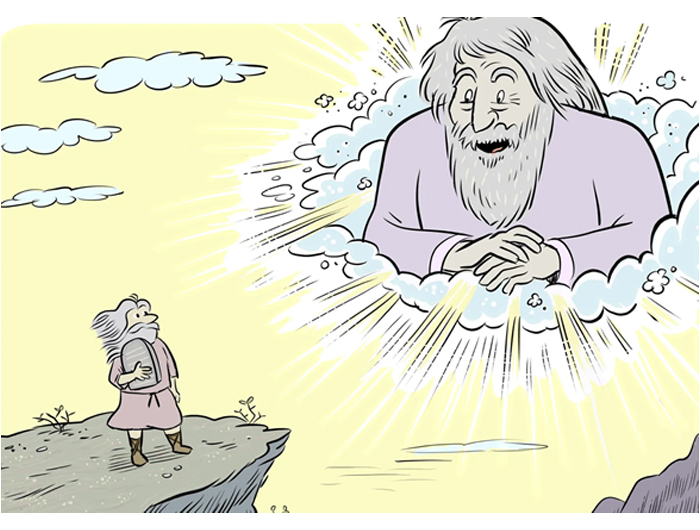Is there even a point?
From the very beginning, humans have found the need to “worship” or “follow” a higher power. Before Shiva, Christ, Allah, Buddha or any other known god, we, as hunter-gatherers, worshipped nature. “Animism” was the first form of religion. It meant that all objects - animate and inanimate - contained life and supernatural elements.
“If God did not exist, it would be necessary to invent him” – Voltaire
This proves the point of many, that societies cannot function without belief in a higher power - be it God, a ruler/leader, or even a political party. We as humans are brainwashed to follow the lead of higher powers. This concept is now rightfully being questioned and changed.
There are many positive aspects of religion and spirituality - the recurring one being “social cohesion”. This means that it brings together several members of different communities and acts as a binding agent. In times like ours, we need more subjects that help us build a more united and inclusive community. Secondly, all religions say mostly the same things in their scriptures - they list the ideal qualities of a good human being and set aside certain conduct for us to follow. So, religion also serves as an embodiment of ethics and morals. Furthermore, people who believe in God or are spiritual are better at accepting what life offers them and even making sense of the negative things that happen to them. Religion has given many a sense of purpose and meaning in life, and that makes them more hopeful and to an extent, grateful and positive. Religion and fear of God motivate people to do the right thing, be more forgiving and selfless.
However, there also many negative aspects of religion. It is often used by people with political power to control the illiterate masses, which results in the formation of cults and other extremist ideologies. In a corrupt time like ours, there is also a possibility of religion being used for the manipulation of innocent masses. As Voltaire might have put it, societies will invent the gods they think they need. Religion these days is misconstrued and is being used as a dividing factor amongst people. People of certain religions have started thinking that they are superior and targeting minority religions and eliminating them. This kind of hate crime and prejudice is causing us to question the idea of religion as a whole.
People must understand that religion as a concept is ever-evolving and needs to move ahead with the times. Scriptures that were written millennials ago must not be taken and followed literally. We must keep reminding ourselves of the core belief of every religion - the promotion of peace, unity and love.
We are fortunate to be living in a time where we get to make our own rules and live life on our terms. You do not need to follow a certain religion to believe in God, and you do not need to believe in God to be spiritual. In fact, you do not need to believe in a higher power at all, Atheism is being followed increasingly these days. You can even believe in a higher power of your liking, or believe in the power of the earth, or even yourself. That is the beauty of the 21st century, you can believe in whatever you please, and not have to give it a name.
So, to conclude, I will ask my question again. God, religion and spirituality - is there even a point?
To an extent, yes. When it is used as a support system, coping mechanism or embodiment of morals, of course, it makes sense. But when the very construct of religion becomes a divide between people belonging to the same country and turns them against each other, or when religious beliefs restrict us from doing what we truly want to do, or when it becomes a trigger for hate crimes and civil wars - is it all worth it? I leave it to you.

